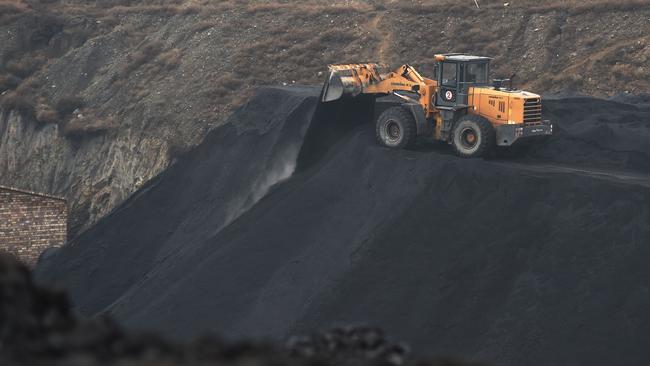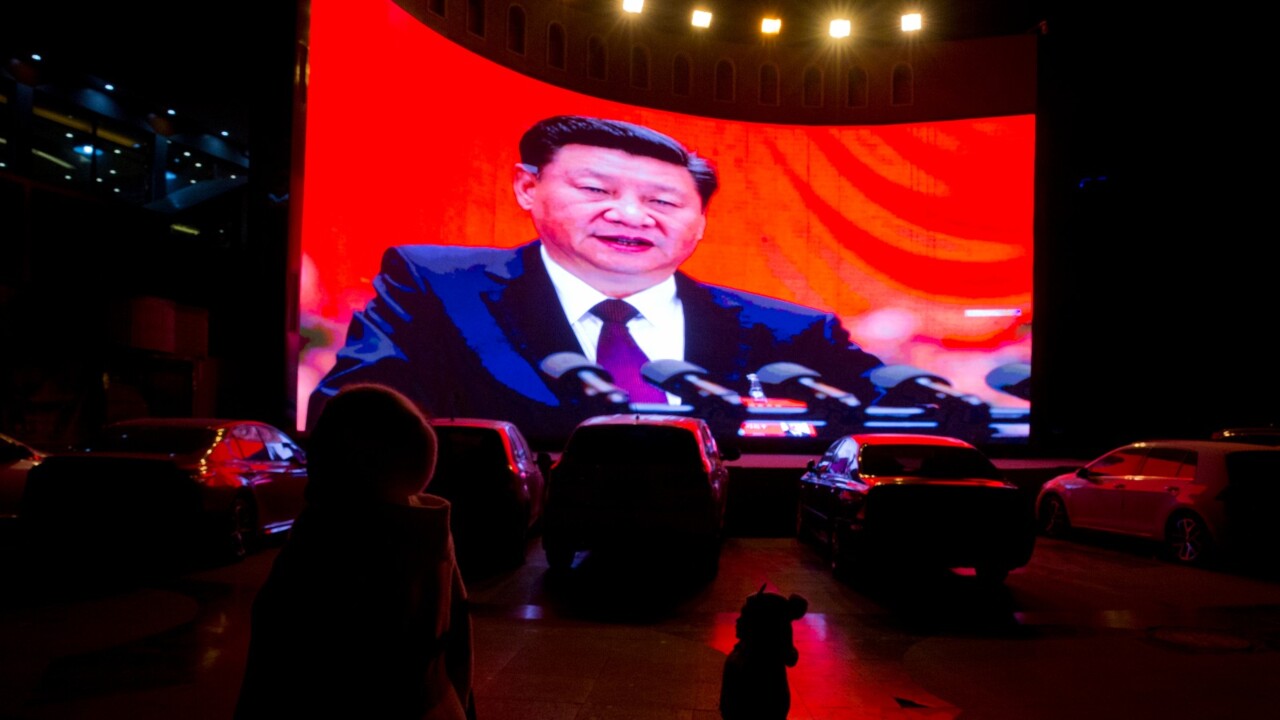We won’t take your coal, says Beijing
Beijing has instructed the owners of more than $1bn of banned Australian coal to find new buyers outside China.

Beijing has instructed the owners of more than $1bn of banned Australian coal to find new buyers outside China, as President Xi Jinping’s administration scuttles the $14bn export trade and ramps up pressure on the Morrison government.
The Australian has learned that Beijing authorities have recently made clear to the owners of nearly 8 million tonnes of Australian coal floating on 73 ships that their cargo will not be unloaded in China.
Beijing’s decision will worsen the humanitarian crisis for the 1500 sailors on board, most of whom have been stranded off the Chinese coast since June.
Gaurav Singh, a navigation officer on the Anastasia, which is stuck off the Chinese port of Caofeidian, said: “There is no chance Australian cargo will be offloaded in China. We don’t have any hope.”
The new Chinese orders are a huge blow to Australia’s thirdbiggest export industry, which had hoped the ban would be lifted in the new year as China reset its informal import quotas.
The edict may inflame trade tensions after Treasurer Josh Frydenberg banned a $300m bid by China State Construction Engineering Corporation for Australian-based builder Probuild, another sign the nine-month bilateral stoush remains at fever pitch.

Industry sources said the trade ban was now expected to run beyond March, despite China enduring a freezing winter and paying a premium to secure coal supplies from both domestic and international producers.
Consultancy Wood Mackenzie said it was fearful China’s ban on coal imports from Australia would last all year, a blow for producers after Australia exported $14bn of coal to China in 2019.
Most of the Australian coal on the stranded flotilla is metallurgical supplies, used to make steel. Thermal coal, needed for power generation, makes up a third of the ships’ stocks.
Speaking from a cabin on the Anastasia, Mr Singh said rival coal exporters were being cleared. “All the ships from Russia and Canada are being offloaded in seven to 10 days,” the 29-year-old said.
After an intervention by Indian Prime Minister Narendra Modi, Indian-flagged vessel Jag Anand has left the flotilla for Japan, where its crew will be changed on Saturday.
Mr Singh said he had heard the Australian coking coal would then be offloaded in South Korea, although the arrangement had not been confirmed.
Chinese owners of the remaining coal spread across 73 ships are haggling over resale prices. “All the buyers want the cargo at half the price. It’s all about commercial interest,” Mr Singh said.
He has been in contact with the increasingly desperate sailors on other stranded ships. As the value of their cargo perishes, the sailors — including hundreds from India and the Philippines — are becoming increasingly bleak about their situation.
“We are in darkness,” Mr Singh said.
A Department of Trade and Foreign Affairs spokeswoman said the Australian government had made a number of representations to the Chinese government about delays in clearing Australian coal and the welfare of the crew. “The current impasse involves private commercial arrangements and we urge all parties to reach a resolution as soon as possible,” she said.
“A quick resolution will allow vessels to unload in a timely manner to satisfy Chinese buyers and consumer needs and ensure the wellbeing of the crew aboard these vessels.”
Opposition trade spokeswoman Madeleine King said the government had presided over a rapid deterioration in the relationship with China while failing to diversify export markets.
“I sincerely hope the new Trade Minister (Dan Tehan) has tried to contact his counterpart in Beijing about the trade crisis that is threatening thousands of Australian jobs and billions of dollars in export revenue,” Ms King said.
“His predecessor couldn’t get his calls returned, so it’s imperative that Mr Tehan reach out to China in an attempt to make a fresh start.”
Wood Mackenzie said China had so far been prepared to deal with the financial fallout of its Australian restrictions.
The ban on Australian coal has forced Chinese coal users to pay over the odds to secure supply with its domestic thermal coal fetching the equivalent of $111 a tonne compared with $US80 a tonne from Australian producers.
“Domestic coal prices were allowed to soar last year, demonstrating the Chinese government’s willingness to fund this shift in the sourcing of its imports,” said Wood Mackenzie head of thermal coal research Dale Hazelton.
A case of COVID-19 in China’s coal province of Shanxi has also hiked fears over supply disruptions.





To join the conversation, please log in. Don't have an account? Register
Join the conversation, you are commenting as Logout